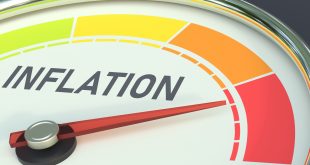Mohammed Hashad, Head of Research and Development at Noor Capital and member of the US Association of Technical Analysts, commented on the most prominent developments in the financial markets and the performance of the most important assets, in an interview on Dubai TV.
Asked about the US stock market, which achieved remarkable weekly gains, and the most important factors that contributed to this recent surge in stocks, Hashad noted that the American market was characterized by an obviously positive performance, achieving weekly gains. Hashad believes that the US stocks succeeded in erasing all the previous losses during the first week of trading in 2024.
Hashad explained that there are several factors that have together maintained the recent upward momentum in stocks, most notably rising expectations in the markets that the monetary tightening cycle that the Federal Reserve has adopted for a long time has already ended or is about to end and the time has come to lower interest rates.
As for the second factor, it is the recent positive data that indicated that the decline in the producer price index, which came less than expected to reinforce the same idea that a rate cut is looming during the next Fed’s March meeting, and the most important of all is the sharp decline in US Treasury bond yields, given the inverse relationship between both.
As for gold, Hashad has pointed out that the precious metal has maintained its positive stability in light of the events markets are witnessing. Asked whether there are positive factors other than the conflict in the Middle East, to which gold prices are reacting, Hashad said that gold prices are trying to maintain their gains for the second session in a row after recording its lowest level of $2,013 per ounce.
Gold is currently hovering near the $2,050 level. The continued escalation of the conflict in the Middle East has increased investors’ desire to buy the yellow metal as one of the most important safe haven assets.
On the data front, the recent positive data from China; namely the Consumer Price Index and the Producer Price Index, showed that there was a decline at a pace less than expected and less than last month, which enhances the positive outlook for the Chinese economy and supports the use of gold in many industrial fields.
There is another factor that contributed to the rise in gold prices, which is the decline in core inflation in the United States of America, which in turn put pressure on US bond yields, specifically for the ten year bills, below the 4% level and was in favour of gold.
Speaking of oil and the Red Sea crisis, US crude is still hovering around $72 per barrel. Asked whether markets could see more rises in oil prices, and to what extent prices could be affected by the risks related to oil market supplies in light of the recent escalation, Hashad noted that in light of the political and geopolitical tensions in the Middle East, oil may witness further increases. Oil prices are hovering above $72 per barrel, and have benefited greatly from the recovery in Chinese demand and the rise in Chinese imports to a record level.
Crude oil also greatly benefited from the fears that returned to the markets regarding global oil supplies and the tensions and conflict occurring in the Red Sea region and its negative impact on ship movement. Oil, in general, benefited from the interruption of supplies in Libya – one of the most important production fields in Libya – which is still halted with a production capacity of 350 thousand barrels per day.
As for the Nikkei index, it showed a surprisingly strong performance. Asked what reasons enhanced its rise, Hashad explained that the main reason is the improvement in risk appetite in the markets in general and the possibility that the Fed will cut interest rates during the next meeting. Of course, lowering interest rates constitutes a fertile and good environment for stock markets to rise.
Summarizing the most important events across markets this week, Hashad said that market participants are awaiting unemployment benefits and consumer price index data from the United Kingdom. From Canada, investors are awaiting inflation data. Regarding the US economy, economists and analysts will wait for retail sales reading and the initial reading of the consumer confidence index.
Home / Market Update / Commodities / Noor Capital | Mohammad Hashad Interview on Dubai TV – January 15, 2024
Tags Chinese economy FED Gold Middle East Noor Capital PPI data rate cut RED SEA
Check Also
Pound Slips Ahead of Key BoE Testimony as Markets Weigh Odds of March Rate Cut
The British pound edged lower on Tuesday as investors turned cautious ahead of parliamentary testimony …
 Noor Trends News, Technical Analysis, Educational Tools and Recommendations
Noor Trends News, Technical Analysis, Educational Tools and Recommendations




